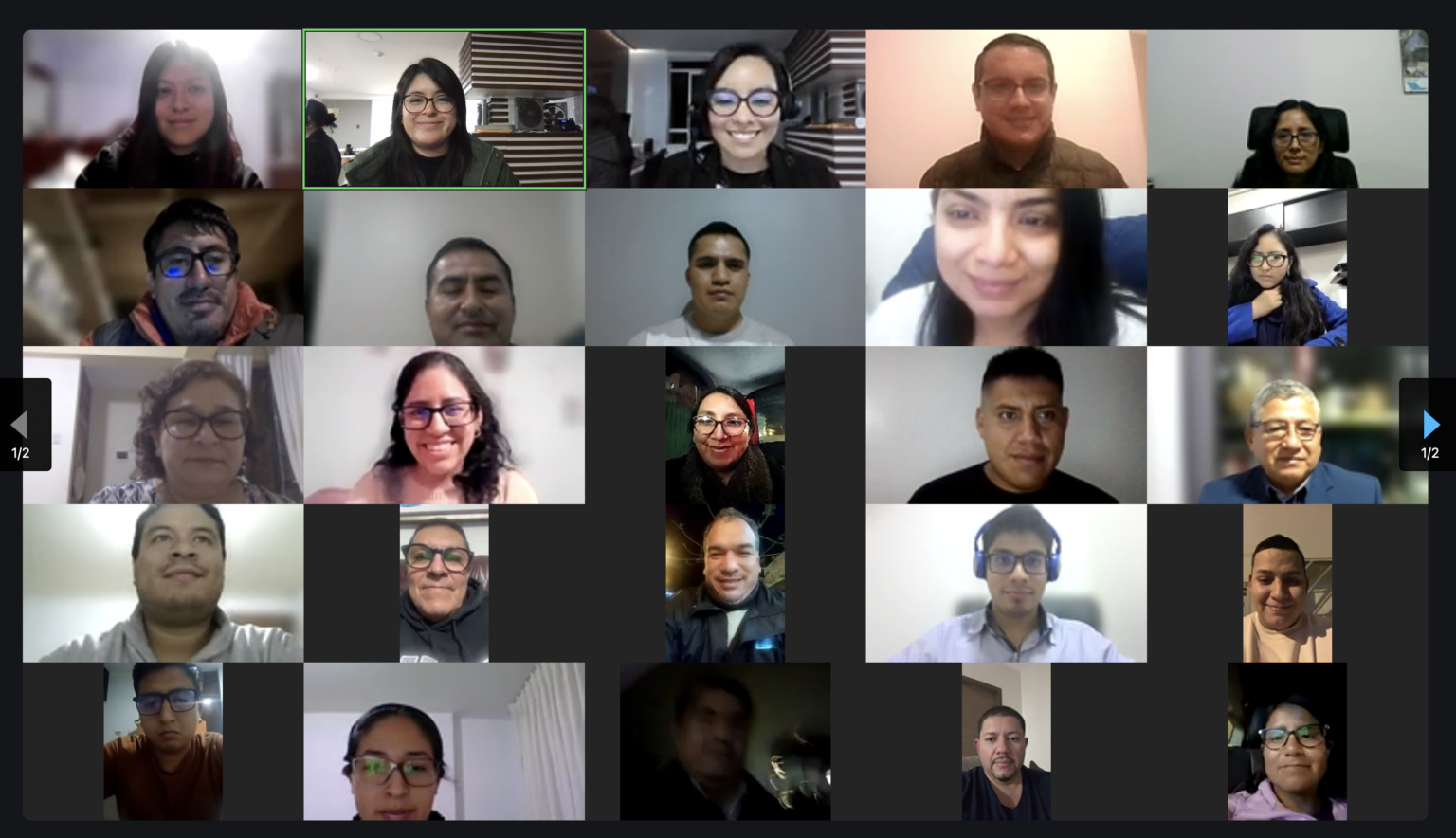Training course on fisheries law concludes its fifth edition with 47 professionals trained
This edition was attended by professionals from different areas and representatives of institutions related to artisanal fishing, such as the Ministry of Production, the National Service of Natural Protected Areas and the Prosecutor's Office specialized in environmental matters.

The fifth edition of the Fisheries Law Training Course, aimed at strengthening the knowledge of the legal framework and management of the fisheries sector in our country, ended on June 11. A total of 47 professionals from various fields, such as biology, fisheries engineering and environmental law, from both the public and private sectors, as well as civil society, participated in this initiative organized by the SPDA and the Scientific University of the South, within the framework of the “For Fisheries” project supported by the United States Agency for International Development (USAID) and the Walton Family Foundation (WFF).
The group, composed of 23 women and 24 men, discussed various topics related to fisheries in Peru, including legal defense of the marine environment, conservation, and the current situation of the pota and perico fisheries. In addition, 18 public officials from different entities such as the Congress of the Republic, the Ministry of Production, the Environmental Evaluation and Control Agency (Oefa), the National Service of Natural Areas Protected by the State (Sernanp), the Specialized Environmental Prosecution Offices, the General Directorate of Captaincy and Coast Guard (Dicapi), the National Fisheries Development Fund (Fondepes) and the National Police of Peru were among the participants.
Presentations were given by national and international experts such as Alfonso Miranda, Director of the Fisheries Committee of the National Confederation of Industries; Renato Gozzer, Fisheries Director for Latin America of the Sustainable Fisheries Partnership; Antonio Cuba, Fisheries Specialist of the SPDA; Percy Grandez, Legal Coordinator of the SPDA’s Marine Governance Program; and Yesenia Chumbe, Technical Coordinator of the SPDA’s Marine Governance Program’s Por la Pesca Project.

The course also offered two enriching keynote speeches. Ana Sánchez Lamelas, Doctor of Law and Full Professor at the University of Cantabria, presented on the regulation of artisanal fisheries in Spain and the European Union. María Fernanda Chávez, Community Engagement and Gender Coordinator at The Nature Conservancy, led a conference on the role of women in artisanal fisheries.
Finally, the course aims to promote academic research and the development of innovative proposals in the fisheries sector. To achieve this, participants will write a final paper that poses a problem relevant to the course topics and proposes solutions or recommendations. The best papers will be published by SPDA and disseminated through the Mar del Perú platform and the Actualidad Ambiental portal.